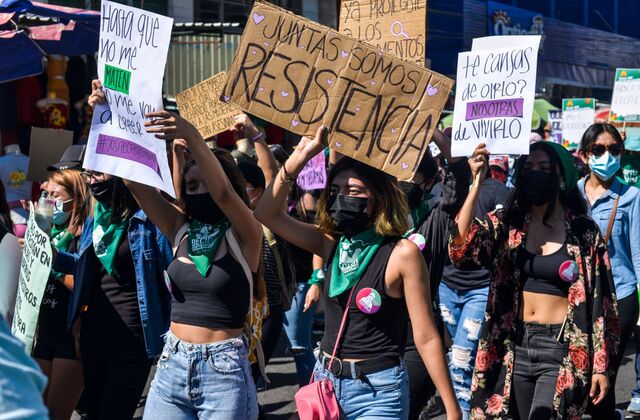FALCON POWERS – Honduras is being taken to a global human rights body for the first time over its total abortion ban, which campaigners say violates women’s fundamental rights and the country’s international commitments.
The Center for Reproductive Rights and the Honduras-based Centro de Derechos de la Mujer (Center for Women’s Rights, CDM) filed a petition with the UN human rights committee this month on behalf of a woman known as Fausia, who underwent a forced pregnancy after being raped and denied an abortion under Honduras’ draconian laws.
Honduras is one of five Latin American countries – along with Haiti, Nicaragua, El Salvador and the Dominican Republic – where abortion is prohibited in all circumstances, even in cases of rape, incest, or when the pregnant woman’s life is at risk. Until last year, it was also the only country to outlaw emergency contraceptives.
Women who have an abortion or medical professionals who perform one can face up to six years in prison. The ban was reinforced by a constitutional amendment in 2021, which raised the threshold of votes needed for congress to modify the abortion law.
This strict ban is now being challenged for the first time via an international body. The organisations backing Fausia’s complaint want the UN committee to rule that the total abortion ban is a violation of women and girls’ fundamental rights, and recommend that Honduras regulate access to abortion as an essential health service.
They are also seeking reparations for Fausia from the Honduran state over its failure to protect her rights.
An Indigenous Nahua woman, Fausia, which is a pseudonym, was attacked by two men and raped by one of them in 2015 in retaliation for her work as an environmental and human rights defender. She could not access the emergency contraception pill due to it being banned at the time, and when she sought medical assistance – despite threats from her attackers – she was met with hostility and intimidation.
“I told the doctor that I didn’t want to be pregnant and wanted a termination, and he told me that if I tried to have an abortion, I would go to prison,” Fausia told the Guardian.


